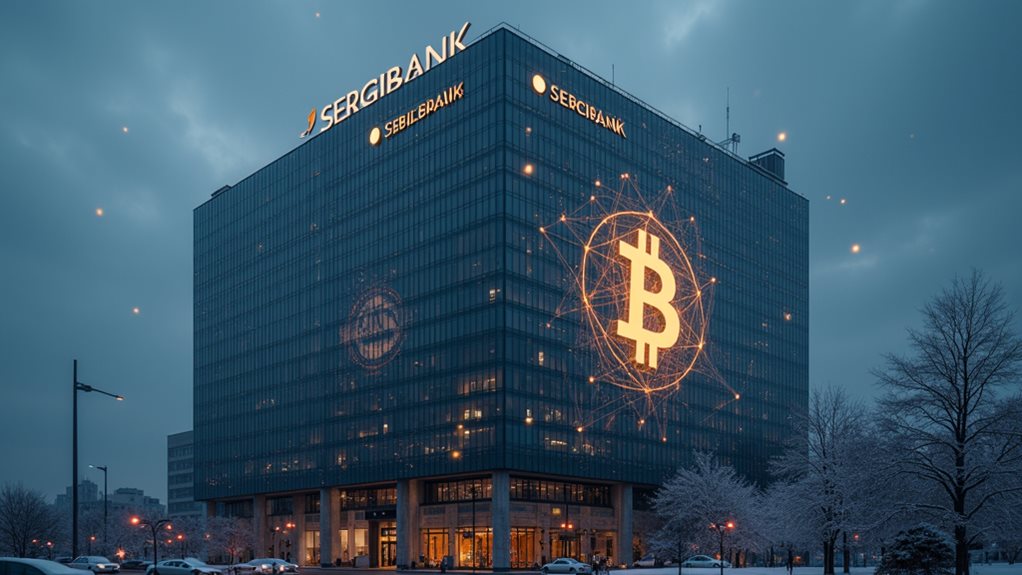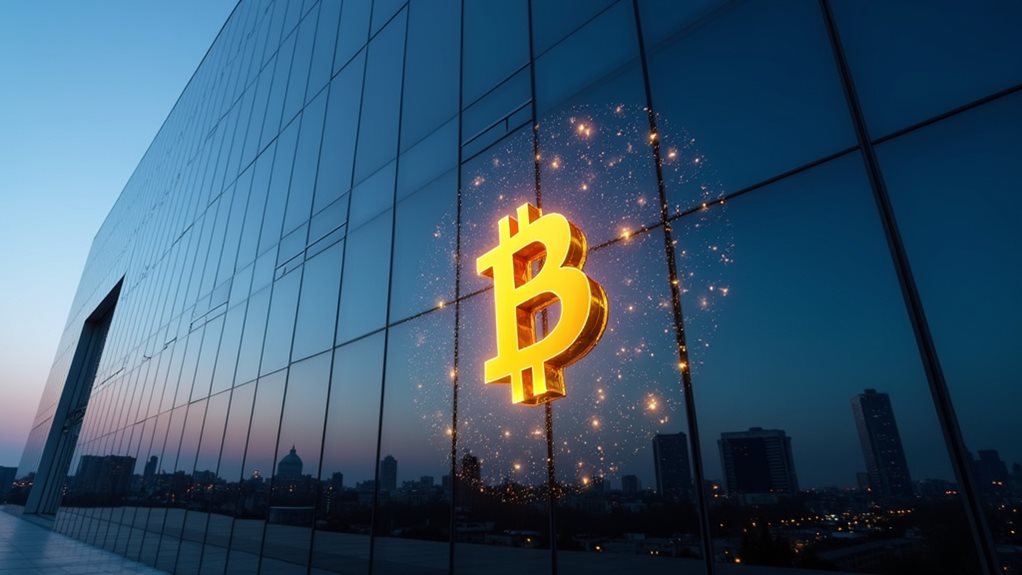Russia’s banking giant Sberbank is diving headfirst into Bitcoin and crypto custody services, treating digital assets like traditional bank money. The move comes after Russia’s Central Bank did a complete 180 on cryptocurrencies, now allowing them for international trade. Sberbank submitted proposals for regulatory approval, planning the same security protocols they use for regular assets. It’s their answer to Western sanctions – building a “crypto fortress” for economic resilience. There’s more beneath this strategic pivot.

Russia’s largest bank just made a bold move into the crypto game. Sberbank, the country’s banking titan, is diving headfirst into Bitcoin and crypto custody services. Because apparently, traditional banking wasn’t exciting enough.
The timing isn’t coincidental. Russia’s Central Bank recently did a complete 180 on cryptocurrencies, now allowing their use in international trade. Gone are the days when crypto was treated like financial kryptonite. Now it’s practically welcomed with open arms. While Binance.US restrictions continue to tighten for American users, Russia is expanding its crypto horizons.
Sberbank’s plan is straightforward yet ambitious. They want to treat digital assets just like traditional bank assets. Same security protocols, same regulatory framework. The bank has already submitted detailed proposals to the Central Bank of Russia, waiting for that golden approval stamp.
Sberbank wants crypto treated like traditional banking assets – same rules, same security, just waiting for regulatory approval.
Here’s where it gets interesting. The custody services will include asset freezing capabilities if law enforcement suspects illegal activity. So much for the “crypto is anonymous” narrative. Big Brother will still be watching, even in the digital domain.
This move isn’t just about jumping on the crypto bandwagon. It’s strategic warfare against Western sanctions. Russia is fundamentally building its own crypto fortress, reducing dependence on foreign firms that might suddenly decide to cut ties. Smart? Absolutely. Surprising? Not really.
The regulatory environment has shifted dramatically. Legislation approved last year allows businesses to use digital currencies for cross-border transactions. Russia is even planning to introduce the digital ruble by September 2026, starting with large merchants. The country is going all-in on digital assets.
Sberbank’s entry is expected to shake up Russia’s crypto custody sector considerably. When the country’s largest bank decides to play, everyone else better pay attention. The move signals growing acceptance of digital assets in Russia’s financial sector, whether the West likes it or not. This development addresses a critical market gap, as foreign companies currently dominate the custody services landscape.
This initiative utilizes blockchain technology for secure, transparent transactions. The bank must conduct thorough risk assessments before launching, because even in the wild world of crypto, someone has to mind the store. Officials are optimistic about phased introduction accelerating adoption across the financial sector.
Russia’s economic resilience strategy just got a major upgrade.









